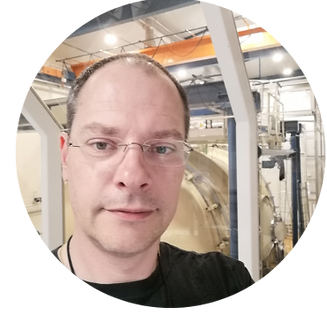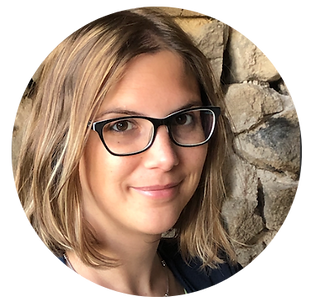
Topic 2
Telescopes: Unravelling the mysteries of the Universe
October 19th, 2022 at 14:30 – 16:30
Egmont Palace, Brussels
Telescopes: Unravelling the mysteries of the Universe
The night sky has fascinated mankind since ancient times, participating to the development of mythologies all around the world. The development of the first refractive telescope, and the revolutionary ideas of Copernicus led to heliocentric revolution of the sixteenth century. The Earth was not the center of the Universe anymore! Larger and more powerful telescopes revealed an even bigger universe, containing numerous galaxies, and helped us to develop new theories to describe it.
Recent developments of advanced telescope allowing the detection of gravitational waves, the observation of the supermassive black holes at the center of our galaxy, thousands of exoplanets, or the first galaxies dating back to just 300 million years after the big bang. Topic 2 focuses on the next generation telescopes such as the E-ELT, the JWST or the Einstein Telescope that will contribute to a better understanding of our Universe, unraveling some of its mysteries.

Speakers & Presentations
Olivier Absil
FNRS senior research associate at STAR Institute ULiège
Bart Vandenbussche
Research manager at the Institute of Astronomy KU Leuven
Giacomo Bruno
Full professor of physics at the IRMP institute of
UCLouvain
Cédric Lenaerts
Project manager CSL
Gwenhaël de Wasseige
Franqui assistant Professor of physics at IRMP UCLouvain
Imaging planetary systems with the Extremely Large Telescope: challenges and promises
The James Webb Space Telescope
The Science of the Einstein Telescope
Focus on the E-test activities at CSL: A new radiative cooling concept
A new look on the Universe
Speakers

Imaging planetary systems with the Extremely Large Telescope: challenges and promises
Olivier Absil
FNRS senior research associate at STAR Institute ULiège
Olivier Absil is an FNRS senior research associate at the STAR Institute of the University of Liège, where he heads the Planetary & Stellar system Imaging Laboratory (PSILab). He has been developing infrared instrumentation for ground- and space-based telescope over the last 20 years, with a specific focus on high angular resolution and high-contrast imaging applications. He is now leading the development of the high-contrast imaging modes for METIS, one of the first-generation instruments that will be installed on the future Extremely Large Telescope.

The James Webb Space Telescope
Bart Vandenbussche
Research manager at the Institute of Astronomy KU Leuven
Dr. Bart Vandenbussche is research manager at the Institute of Astronomy
at KU Leuven. He is developing astronomical instruments for space
telescopes and observatories on the ground. He has been working on the
large ESA Science missions ISO, Herschel, JWST, PLATO, and ARIEL. He is
leading the KU Leuven team working on the commissioning and calibration
of the MIRI instrument on the James Webb Space Telescope.

The Science of the Einstein Telescope
Giacomo Bruno
Full professor of physics at the IRMP institute of UCLouvain
Giacomo Bruno is a professor at UCLouvain. He conducts experimental research in the physics of fundamental interactions. After 20 years of research with particle accelerators at the CERN laboratory, in 2018 he created a new research group on gravitational waves at UCLouvain. He is the Belgian spokesperson in the International Virgo collaboration as well as the spokesperson for the Louvain-Liège group in the international Einstein Telescope collaboration.

Focus on the E-test activities at CSL: A new radiative cooling concept
Cédric Lenaerts
Project manager CSL
Cedric Lenaerts is a PhD Physicist. He works since 14 years at CSL (Centre Spatial de Liège - ULiège) where he is involved in several research and space projects. Member of the Surface Micro and Nano Engineering lab team at CSL he is involved in special textured coating device development. Project manager since more than 10 years, he is actually in charge of the E-test activities at CSL including cryogenics and vacuum aspects.

A new look on the Universe
Gwenhaël de Wasseige
Franqui assistant Professor of physics at IRMP UCLouvain
Gwenhael W De Wasseige is a professor at the Research Institute for Mathematics and Physics and Faculy of science at UCLouvain. She is working on both the IceCube Neutrino Observatory, located at the South Pole, and the KM3NeT Telescope, immersed in the Mediterranean Sea. She uses these instruments to search for neutrinos, elementary particles, produced by some of the most energetic phenomena in our Universe, such as binary black hole mergers or gamma ray bursts. She combines the neutrinos observations, with the signal recorded in light and gravitational waves from the same events to better understand them. Prof W De Wasseige is also involved in outreach and science communication. She has received national and international grants and awards for both her scientific accomplishments and science communication, as the prize for science communication from the Royal Academy of Science in Belgium, a Marie Sklodowska Curie Individual Fellowship, and the Francqui Startup Grant."
Chairs & Co-chairs

Katrien Kolenberg
Katrien Kolenberg is Professor of Astrophysics at the University of Antwerp and the VUB, as well as STE(A)M coordinator and currently Flemish ESERO (European Space Education Resource Office) coordinator at the KU Leuven. Her research lies in the field of stellar astrophysics, particularly variable stars and asteroseismology. Katrien is passionate about scientific research, astronomy for development, and innovative/artistic science communication and education worldwide. She has received international awards for both scientific accomplishments and science communication.

Carl-Henrik Dahlqvist
Carl-Henrik Dahlqvist holds a Master's degree in Business Engineering from the Université catholique de Louvain (LSM). After having worked 2 years for SWIFT as a financial analyst, he decided to go back to university to pursue a Ph.D. in Finance in co-supervision between the Université catholique de Louvain (LSM) and the Université de Namur where he was also a teaching assistant in Finance. He decided, a few years later, to transform his passion for Astronomy and space into a possible career. In 2014, he started, on top of his Ph.D. in Econophysics, a 2 years preparatory program for the M.Sc. in Particle Physics and Cosmology. After having completed this MSc in Particle Physics and Cosmology and received his PhD in Economics from the Université de Namur (CeReFiM) and the Université catholique de Louvain (LFIN), he started in October 2018, a second PhD fellowship in exoplanet imaging at the STAR Institute at the Department of Astrophysics and Geophysics in collaboration with the Montefiore Institute of Electrical Engineering and Computer Science of the Université de Liège. His current interests lie in Exoplanets Detection, High Contrast Imaging, Optics, Solar physics, Spaces and Planetary Sciences and Satellite Conception and Operational Management.

.png)